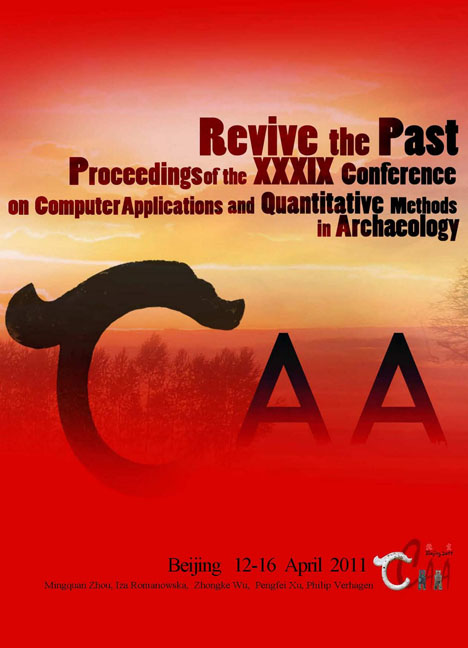 Revive the Past
Revive the Past Adapting the Agile Process to Digital Reconstructions of the Temple of Apollo at Delphi
Published online by Cambridge University Press: 23 June 2021
Summary
Abstract:
Ashes2Art is a multi-disciplinary, upper level undergraduate course and project that primarily focuses on accurate digital reconstructions of culturally significant architecture and archaeological sites. Digitally reconstructing the 4th century BC Temple of Apollo at Delphi, Greece, required the distinct analysis of both the knowledge domain and functional solutions. The primary, and often only, source for reliable data regarding the temple's reconstruction are the Fouilles de Delphes, archaeological reports published over the past century by the French Archaeological School in Athens with limited availability (although they are largely online now, some key issues are missing from online resources and the quality of the scans ranges from excellent to unusable for reconstructions). Coupling the research on the temple with the need to familiarize oneself with a robust, full-featured software suite presented a continual process of experimentation and revision. Relying upon personal experience with software development, the Agile Process was most aptly suited to this task.
The Agile Process attempts to mitigate an evolving scope by focusing on iterative, cyclical production coupled with frequent meetings and exchanges. The adaptation of the Agile Process to the creation of the temple model allowed for continual revision while still retaining a production ready model. By combining individual and cooperative work, the project benefited from quick, energetic progress tempered with careful cross-examination. In the final stages of the project, significant progress and accuracy were achieved by using an adaptation of the paired programming model. Rather than two members work jointly on a single workstation, as typical of the paired programming model, one member worked while overseen by an advising professor. The entire project presented an intriguing adaptation of the Agile Process to fit a cross-disciplinary project which showed remarkable progress while continually growing in scope.
Key Words: Agile Process, Digital Reconstruction, Delphi, Ashes2Art
Motivation
The process of digitally reconstructing an accurate model of the Temple of Apollo at Delphi presented significant challenges. These challenges broadly fell into four categories.
Accuracy and uncertainty
Any reconstruction undertaken in the Ashes2Art (www.coastal.edu/ashes2art/about. html) project has the explicit requirement of adhering to accuracy foremost. Accuracy, however, can be difficult to quantify and evaluate (Flaten 2009).
- Type
- Chapter
- Information
- Revive the PastProceedings of the 39th Conference of Computer Applications and Quantitative Methods in Archaeology, pp. 30 - 37Publisher: Amsterdam University PressPrint publication year: 2012


